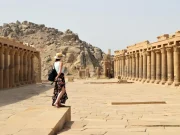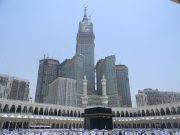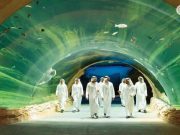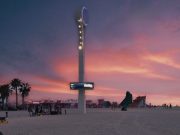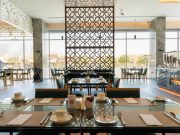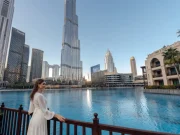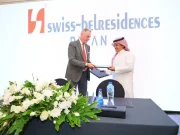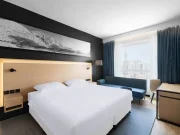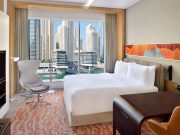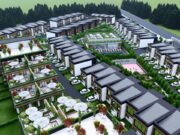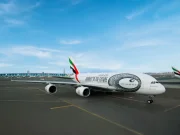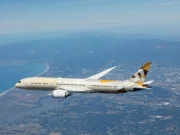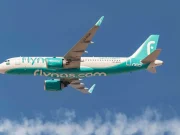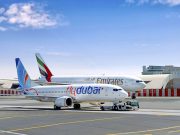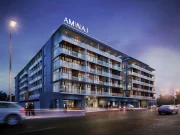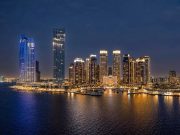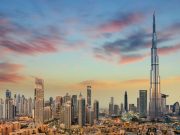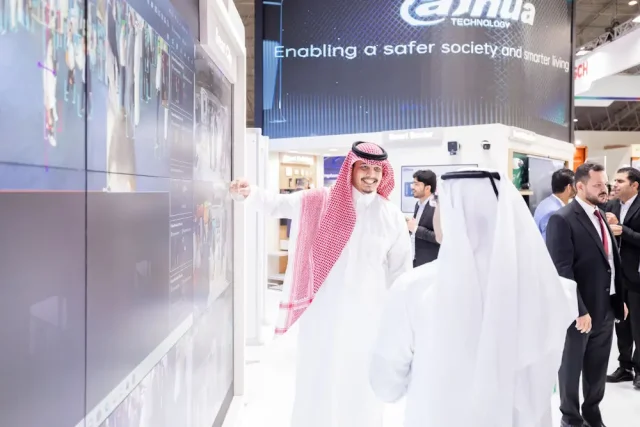The concept of smart cities is rapidly evolving, and the Middle East is at the forefront of this transformation, embracing innovation and green energy to lead the way into a sustainable future. From Saudi Arabia’s ambitious NEOM project to the Red Sea Project, the region is redefining urban living by creating cities that are not only smart but also sustainable, powered by renewable energy and designed to minimize waste.
Industry experts are highlighting the Middle East’s commitment to building smart cities that optimize urban functionality, improve energy efficiency, and enhance overall quality of life. According to Eng. Thamer Anwar Noori, Director of Industrial Safety & Security at the Royal Commission of Jubail & Yanbu, “Cities worldwide are increasingly integrating smart city objectives into their long-term visions. With the growing global focus on environmental sustainability, the concept of smart cities plays a crucial role in this transition.”
During the upcoming Intersec Saudi Arabia, a premier security, safety, and fire protection trade show, Noori will discuss strategies and innovative approaches to building smart cities from a security perspective. The event, which takes place from October 1-3 at the Riyadh International Convention and Exhibition Centre (RICEC), will feature a panel discussion titled “Paving the Way Towards Smart, Safe, Sustainable Cities,” highlighting how cities in the Middle East are paving the way for a greener, smarter future.
The Middle East is not only focusing on technological advancements but is also heavily investing in green energy. Cities like NEOM and the Red Sea Project are trailblazing efforts to achieve near-zero waste and set new standards for sustainable urban living. These smart cities are envisioned to be powered entirely by renewable resources, pushing the boundaries of what’s possible in sustainable development.
On the opening day of the Future Security & Safety Summit at Intersec Saudi Arabia, experts such as Ayub Aldakael, Executive Director of Risk & BCM; Abdulatif H. Alboali, Head of Internal Audit, Mohammed bin Salman Nonprofit City; and Andrew Long, Principal Consultant – Security Risk Management at WSP Middle East, will join Noori on the panel. They will delve into how innovative security solutions and urban planning strategies can create safer, more resilient cities.
The three-day event will also feature various sessions that address pressing global challenges. Discussions will cover topics like international collaboration in security, the role of AI in enhancing cybersecurity, and the impact of AI on the security and safety industry. These topics are crucial as cities worldwide, including those in the Middle East, face evolving security threats and challenges.
Riham Sedik, Show Manager of Intersec Saudi Arabia at Messe Frankfurt Middle East, emphasizes the importance of this event: “Our conference will bring together global security thought leaders, cutting-edge innovations, and expert insights under one roof, making it a must-attend event for those in the sector.” Attendees will have the chance to engage with industry experts, explore emerging trends, and learn about new advancements in smart city technology.
With an expanding exhibition floor that covers 23,000 square meters and features five product categories, Intersec Saudi Arabia is poised to be the leading trade fair in the region for security, safety, and fire protection. The show’s growth is a testament to the increasing demand for smart city solutions and innovations.
Bilal Al Barmawi, CEO and Founder of 1st Arabia Trade Shows & Conferences, affirms this by stating, “Intersec Saudi Arabia has established an incredibly insightful conference program, confirming the exhibition’s position as the country’s leading trade fair for security, safety, and fire protection.”
As the Middle East continues to develop some of the most advanced smart cities globally, it is setting an example of how forward-thinking, sustainable urban planning can create cities that are not only intelligent but also environmentally friendly. The region’s vision for a sustainable future is clear, and it is ready to lead by example in the development of smart, green cities.
- U by Emaar Unveils New Brand Identity and Exclusive Member Benefits - September 17, 2024
- Dubai to Host Inaugural Aviation Future Week at the Museum of the Future - September 17, 2024
- Smart Cities: Middle East’s Vision for a Sustainable Future - September 10, 2024


